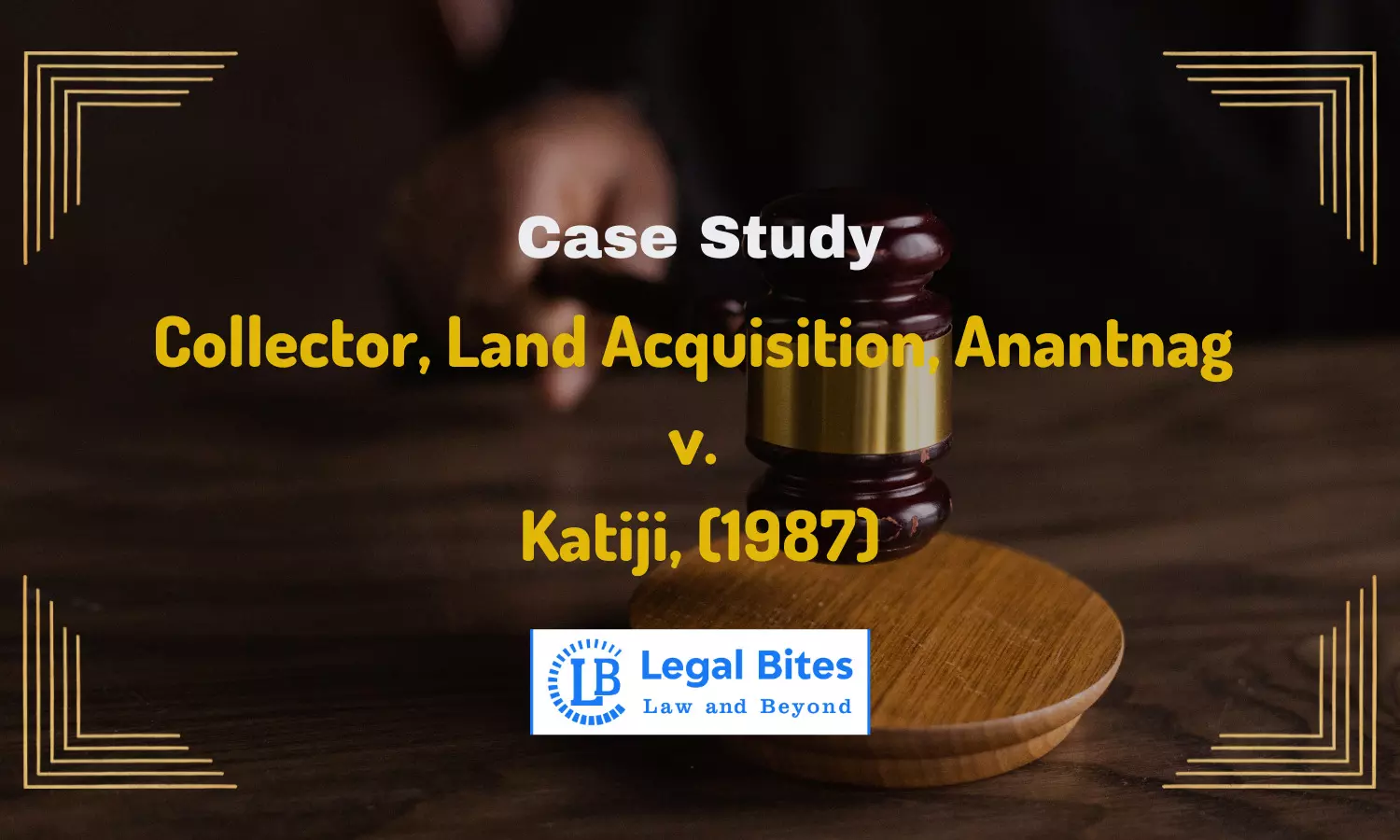Case Study: Collector, Land Acquisition, Anantnag v. Katiji, (1987) | Section 5 of the Limitation Act
Here's all about a landmark case within the purview of the law of limitation, with a particular focus on Section 5 of the Limitation Act, 1963.

Here's all about a landmark case within the purview of the law of limitation, with a particular focus on Section 5 of the Limitation Act, 1963.
In this landmark case, the Supreme Court addressed the issue of "sufficient cause" and emphasized that courts should take a broad and justice-centric perspective when adjudicating matters under this provision.
Case Title: Collector, Land Acquisition, Anantnag v. Katiji
Court: Supreme Court of India
Citation: AIR 1987 SC 1353
Judges: Justice M.P. Thakkar and Justice B.C. Ray
Date of Judgment: February 19, 1987
Facts
- The State of Jammu & Kashmir filed an appeal against a decision of the Jammu & Kashmir High Court (hereinafter as “J&K HC”).
- As per the decision of the J&K HC, the State had to provide compensation of about 14 lakhs rupees for the acquisition of lands in Anantnag for public purposes.
- This decision involved an 800 percent upward revision, from Rs. 1000 per kanal to Rs. 8000 per kanal, which further raised questions about valuation principles.
- The appeal was dismissed as it surpassed the allotted time limit by four days and they failed to obtain a condonation of delay.
- Therefore, to settle this question, the State has filed an appeal by special leave at the apex court.
Issues
- Whether to condone the delay in filing of appeal by the State?
- Whether to apply the same benchmark while applying the doctrine of sufficient cause to all parties regardless of their personality in the given context?
Laws Applied
Section 5 of the Limitation Act, of 1963, provides for the extension of the period in certain cases.
Judgment
The court observed that the term “sufficient cause” used in Section 5 of the Limitation Act, 1963 (hereinafter “the Act”) is “adequately elastic” which enables courts to apply the law in a meaningful manner, where liberal interpretation is done, which allows them to meet the ends of justice. The court has taken a liberal approach while interpreting the doctrine of sufficient cause and made the following observations:
- In a general sense, filing an appeal late does not favour the litigant.
- Refusing to condone delay can lead to the dismissal of a meritorious case at the threshold itself, which undermines the cause of justice.
- The principle of “Every day’s delay must be explained” is to be applied sensibly and not in a pedantic manner by considering the intricacies of the situation.
- In case of a clash between substantial justice and technical considerations, it is substantial justice which must come out as victorious.
- No presumption is there that the delay is intentional, negligent, or malicious, and that a litigant does not gain anything by causing delays.
- It must be noted that the judiciary is respected for its capability to rectify injustice and not for its ability to legitimize injustice on technical grounds.
In the instant matter, it was observed that by taking a justice-oriented approach, there was sufficient cause and it did not matter that a State was seeking a condonation for delay and not a private party. A State represents the collective cause of the community and it must not be treated like an unwelcome person.
Courts have the task of interpreting the doctrine of sufficient cause by the underlying spirit and philosophy of Section 5 of the Act and this approach must extend to the practical application of the provision in separate cases to make sure that fair and equitable justice is done based on the merits of each case. In furtherance of this, the court has urged others to consider the broader context and the specific circumstances surrounding the matter at hand. While doing this the court has recognized that there is a need for a fair resolution which also aligns with the fundamental principles of justice.
In the instant matter, the court found that it was quite evident that a valid reason existed for the delay. Therefore, the order of the J&K HC was set aside and the delay was condoned. The matter was remitted back to the High Court for hearing the case on merits.

